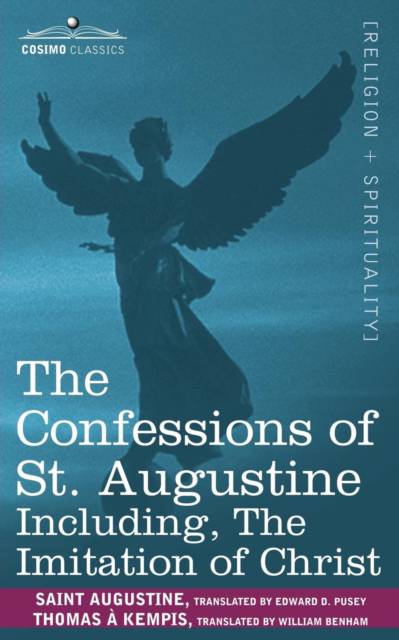
- Retrait gratuit dans votre magasin Club
- 7.000.000 titres dans notre catalogue
- Payer en toute sécurité
- Toujours un magasin près de chez vous
- Retrait gratuit dans votre magasin Club
- 7.000.0000 titres dans notre catalogue
- Payer en toute sécurité
- Toujours un magasin près de chez vous
The Confessions of St. Augustine, Including the Imitation of Christ
Thomas A'Kempis, Saint Augustine of Hippo
Livre broché | Anglais
33,95 €
+ 67 points
Description
Whensoever a man desireth aught above measure, immediately he becometh restless. The proud and the avaricious man are never at rest; while the poor and lowly of heart abide in the multitude of peace. The man who is not yet wholly dead to self, is soon tempted, and is overcome in small and trifling matters. It is hard for him who is weak in spirit, and still in part carnal and inclined to the pleasures of sense, to withdraw himself altogether from earthly desires. -from The Imitation of Christ Here, in one volume, are two of the most influential works of Christian spirituality and philosophy: The Confessions of St. Augustine and The Imitation of Christ. Aurelius Augustinus, aka SAINT AUGUSTINE (354-430) was bishop of Hippo, today called Bona, in Algeria. Before his conversion to Christianity, however, he lead a wild and licentious youth in Carthage and later studied philosophy for years in Milan. His Confessions, in which he begs forgiveness from God for his sins and sets himself entirely to devotion to God, is not only a foundational work of Western theology, it is also one of the earliest autobiographies, offering keen insight into the workings of the medieval mind. Written in Latin in the early 15th century, The Imitation of Christ is perhaps second only to the Bible in importance in Christian thought. Thomas Hemerken, aka THOMAS À KEMPIS (1380-1471), was a Christian monk and mystic from Kempen, Germany, and he intended this patchwork of medieval mysticism for the most sincere and dedicated of believers-monks, nuns-but lay Christians find wisdom in his encouragement and teaching of a direct path to a relationship with God. Also available from Cosimo Classics: Saint Augustine's The City of God OF INTEREST TO: readers of Christian theology, students of medieval literature AUTHOR BIO: British clergyman and translator EDWARD BOUVERIE PUSEY (1800-1882) was one of the most influential figures in the Anglican church in the 19th century, formulated theology and doctrine that radically altered the practice of Christianity in England. British author WILLIAM BENHAM (1831-1910) also wrote Old St. Paul's Cathedral and The Benham Book of Palmistry: A Practical Treatise on the Laws of Scientific Hand Reading.
Spécifications
Parties prenantes
- Auteur(s) :
- Editeur:
Contenu
- Nombre de pages :
- 388
- Langue:
- Anglais
Caractéristiques
- EAN:
- 9781596054257
- Date de parution :
- 01-06-06
- Format:
- Livre broché
- Format numérique:
- Trade paperback (VS)
- Dimensions :
- 127 mm x 203 mm
- Poids :
- 421 g

Les avis
Nous publions uniquement les avis qui respectent les conditions requises. Consultez nos conditions pour les avis.






